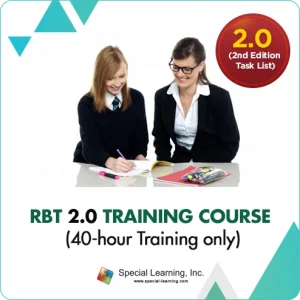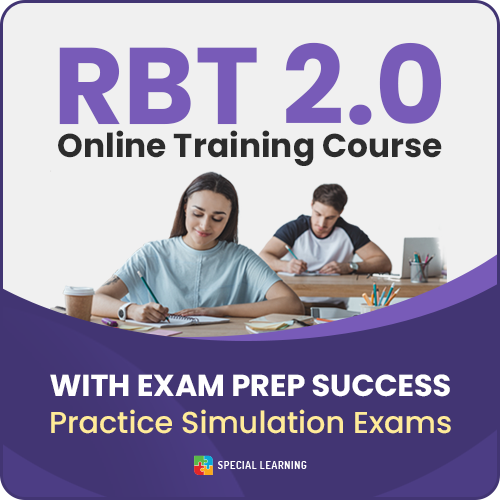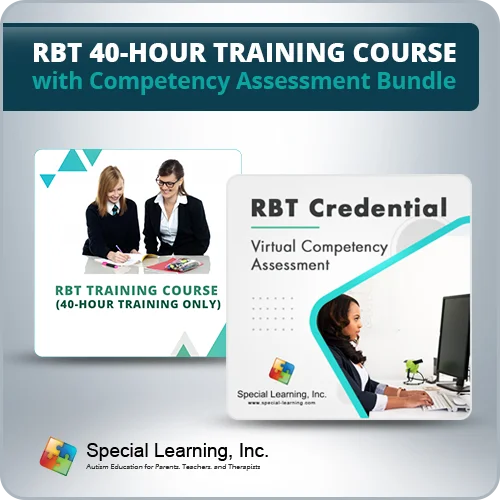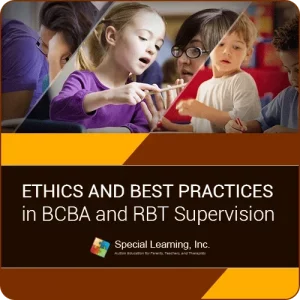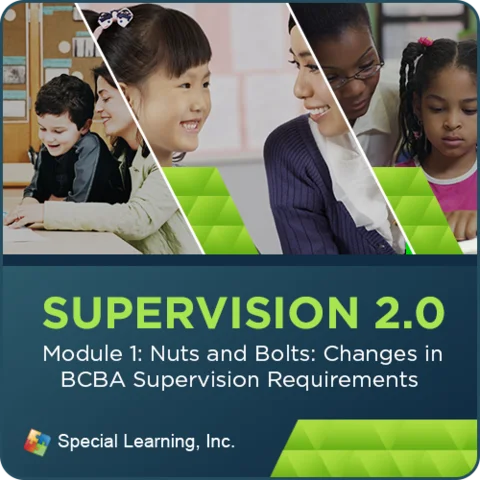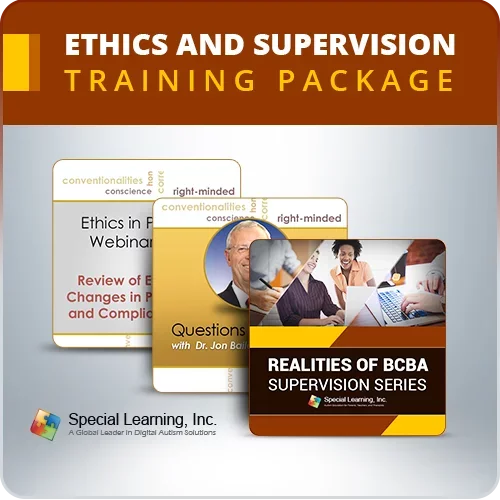Understanding the Differences Between ABA Credentials and Professionals
The field of Applied Behavior Analysis (ABA) is a dynamic and rapidly growing field that offers various career opportunities for professionals at different levels. To navigate this diverse landscape, it’s essential to understand the key credentials and roles within the ABA industry.
In this article, we will delve into the distinctions between Behavior Technicians (BT), Registered Behavior Technicians (RBT), Board Certified Assistant Behavior Analysts (BCaBA), Board Certified Behavior Analysts (BCBA), and Board-Certified Behavior Analysts – Doctoral (BCBA-D).
We will also provide links to relevant information on the Behavior Analyst Certification Board (BACB) website for those interested in pursuing these careers.
Behavior Technician (BT):
A Behavior Technician (BT) is a professional who provides direct services to individuals under the supervision of higher-level professionals.
BTs can be either registered or non-registered, and their role varies depending on the state and funding source requirements. In some states, such as Pennsylvania, individuals can practice as Behavior Technicians with just 24 hours of training, known as Behavior Health Technician (BHT) credential.
There is no national certification for BTs while the credentials like RBT, BCaBA, and BCBA have the national level certification according to the BACB requirements.
Registered Behavior Technician (RBT)
The Registered Behavior Technician (RBT) credential is an entry-level certification that allows individuals to provide direct ABA services under the supervision of a Board-Certified Behavior Analyst (BCBA) or Board-Certified Assistant Behavior Analyst (BCaBA).
Requirements: To become an RBT, you need a high school degree, be at least 18 years old, and complete 40 hours of RBT training. Additionally, and must go through a competency assessment, which involves being observed by a BCBA or BCaBA. But sometimes it can be done by RBT as well, which is more senior to you and actually carries out all the tasks.
There are two parts of competency, one is having somebody observe you doing something, and then the other part is taking the exam and passing the exam.
To explore the requirements and responsibilities of RBTs, visit here: https://www.bacb.com/rbt/
Board Certified Assistant Behavior Analyst (BCaBA):
The Board-Certified Assistant Behavior Analyst (BCaBA) credential is the next step up from the RBT and requires a higher level of education and responsibility.
Requirements: To become a BCaBA, you need a bachelor’s degree in any field and must complete specific coursework in ABA. You also need to accrue supervised fieldwork hours.
Supervision Hours: BCaBAs require supervision from a BCBA. This supervision ensures that they are providing high-quality services and adhering to ethical standards.
Direct and Indirect Hours: BCaBAs are responsible for a combination of direct and indirect hours. They spend time working directly with clients but also engage in activities such as data analysis and treatment plan development. Both types of hours must be supervised.
However, BCaBAs may have limited opportunities as some states and funding sources do not allow them to act as supervisors.
Their role often involves highly technical work, and they may work under the supervision of a BCBA.
To explore the requirements and responsibilities of BCaBAs, visit here: https://www.bacb.com/bcaba/
Board Certified Behavior Analyst (BCBA):
The Board-Certified Behavior Analyst (BCBA) credential is one of the most sought-after and prestigious certifications in the ABA field. BCBA professionals are responsible for conducting assessments, designing behavior intervention plans, and overseeing the work of RBTs and BCaBAs.
Requirements: To become a BCBA, you need a master’s degree in ABA or a related field, specific coursework, supervised fieldwork hours, and must pass a challenging exam with pass rates around 60%.
Supervision Hours: BCBA candidates must complete a specific number of supervised hours, including both direct and indirect hours. These hours are essential for gaining practical experience and expertise.
Direct and Indirect Hours: BCBA candidates spend a portion of their supervised hours providing direct services to clients. However, they also engage in activities such as assessment, treatment plan development, and staff training, which are considered indirect hours. Both types of hours must be supervised
To explore the requirements and responsibilities of BCBAs, visit here: https://www.bacb.com/bcba/
Board Certified Behavior Analyst - Doctoral (BCBA-D):
The Board-Certified Behavior Analyst – Doctoral (BCBA-D) credential is the highest level of certification in the ABA field and is typically held by individuals with extensive experience and expertise. BCBA-D professionals often work in academia, research, or hold leadership roles within organizations.
Requirements: To become a BCBA-D, you need a doctoral degree (Ph.D. or equivalent) in ABA or a related field, specific coursework, supervised fieldwork hours, and must pass the BCBA examination.
Supervision Hours: BCBA-D candidates must also complete supervised hours, including both direct and indirect hours. These hours are crucial for ensuring that BCBA-D professionals have a deep understanding of ABA principles.
Direct and Indirect Hours: BCBA-D candidates engage in both direct and indirect hours, similar to BCBA candidates. However, due to their advanced level of education and experience, BCBA-D professionals often focus more on research, teaching, and leadership roles.
To explore the requirements and responsibilities of BCBA-D, visit here: https://www.bacb.com/bcba/#BCBAD
Comparing the Credentials
Here is a summary of the key differences between these four ABA credentials:
RBT: Entry-level, minimum education requirement focuses on implementing behavior intervention plans.
BCaBA: Requires a bachelor’s degree, involves more responsibilities, works under BCBA supervision.
BCBA: Requires a master’s degree, conducts assessments, designs intervention plans, supervises RBTs and BCaBAs.
BCBA-D: Requires a doctoral degree, often works in academia, research, or leadership positions.
It’s super easy for RBTs, you can become RBT within two weeks. RBTs have grown in numbers significantly, since credential was created only in 2014, there’s about 125,000 registered behavior technicians in the world. So, in less than 10 years, we have grown from zero RBT to about 125,000. But, if you add BTs as well who are non-credentialed, there’s probably another 150,000.
So, the total universe of BT’s behavior technicians, credentialed or uncredentialed, is about 300,000
On the other hand, combining the BCaBA, BCBA, and BCBA-D there’s only a total of about 70,000. This credential has been around for 35 years, and there’s only 70,000 of these people.
Of this 70,000, about 10% are the BCBA-D category and about 5% are in the BCaBA category and the rest are BCBAs.
Why are there so few people in the BCaBA category because a lot of the States and funding sources do not allow BCaBAs to act in the role of a supervisor. So, becoming BCaBA is just like a glorified, highly, highly technical behavior technician doing direct service.
Some states have what we call it 3-tiered service delivery model where you have the behavior technicians that are doing the day-to-day work and then you have the BCaBA who’s like in mid-grade supervisor and then you have a BCBA who is a senior supervisor. But most states don’t allow that, so it’s either going to be a behavior technician or a BCBA.
Challenges in the ABA Field:
One significant challenge in the ABA field is the requirement for supervision hours, especially for individuals aiming to become BCBA-certified. Finding opportunities for indirect supervision can be difficult, and many individuals end up providing free labor to meet these requirements.
For example, if we take the BCBA example.
It’s 2000 hours of fieldwork that you need and it’s broken into 40% and 60%. 40% are direct hours which means you’re working as a behavior technician providing direct services and 60% of those hours are indirect hours and indirect hours are the types of activities that you would be doing when you’re a BCBA, but it must be supervised.
We have a big problem in the field right now because everybody wants to hire people to provide direct services because you can build insurance companies and get reimbursed for it.
But companies don’t pay for the indirect hours, so a lot of people that are working as RBT’s or behavior techs who want to become a BCBA are finding themselves in situations where they can get all the direct hours that they need. But they can’t get the indirect hours and if you don’t have the indirect hours, then you don’t qualify to sit for the exam, so they’re kind of sitting in a bubble right now.
And even if companies are individuals who are able to get indirect hours, oftentimes, companies don’t pay for those indirect hours. So, it’s essentially 60% of 2000 hours which are 1200 hours that you need to become a BCBA, you must provide free labor.
That’s how the industry or the field is set up right now. That’s why we emphasize working with really ethical companies like Align Vision Behavior and Engaging Minds Autism Services. They actually pay for indirect hours, which is very rare in our field, so it’s difficult for people to even get indirect hours even though they’re willing to work for free. It’s even rarer for people to actually find a company that’s going to pay them for the indirect hours because they don’t get reimbursed for it. So, it’s a cost to the organization.
Conclusion:
The ABA industry offers various career paths, from BTs to BCBA-Ds, each with its own unique requirements and responsibilities. It’s crucial for individuals interested in this field to understand these distinctions and the challenges they may face in pursuing their chosen career path. The BACB website provides valuable resources for those seeking more information about these professions and their specific requirements.

